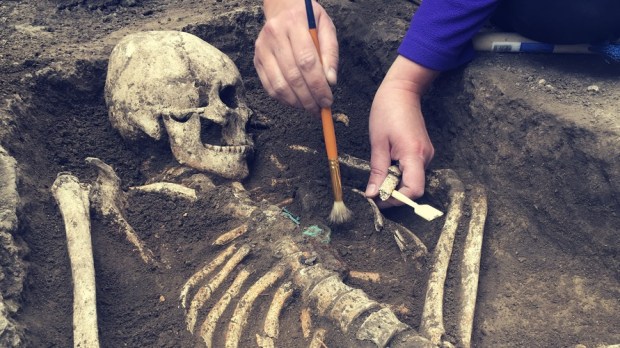Lenten Campaign 2025
This content is free of charge, as are all our articles.
Support us with a donation that is tax-deductible and enable us to continue to reach millions of readers.
Studying history from a textbook is informative, but lacks the hands-on experience to make a personal connection with the past. Participating in an archaeological excavation, however, is a unique way to experience history first-hand. Now, everyone can have a chance for such an encounter thanks to the Biblical Archaeological Society.
For nearly four decades BAS has been helping volunteers connect with important and exciting digs in the Near East, which allow laymen the opportunity to get their hands dirty for the sake of historical enlightenment. They welcome folks from all backgrounds, age groups, and cultures to join together and share the thrill of discovery.
The program, listed on the BAS website simply as “Digs,” is designed to educate volunteers on the proper archaeological procedure, while allowing the formation of wonderful memories to last a lifetime. It is also a place to meet like-minded individuals. They say on their site:
“Many of our volunteers have forged lifelong friendships—some have even met their future spouses while in the field!”
There are a lot of dig sites open to volunteers, most of which are in Israel, but there are other opportunities to be found in Jordan, Egypt, Turkey, and even one in Cyprus. The various digs can suit anyone’s area of interest, be it in the kings David and Solomon, the life of Christ, or ancient Phoenician cities.
The website provides an in-depth description including location, historical and Biblical significance, and what the goals are for the season. The dig directors and professors are eager to teach about archaeological methods, and the significance of their discoveries to our understanding of history.
BAS is not affiliated with any particular excavations, but they serve as a middle-man who can connect volunteers with the most appropriate dig to suit their interests. They also offer a scholarship to help those who cannot afford the trip.
Last year, they awarded the scholarship to 14 people, mostly students, who were all thrilled with the experience. One Winner, Samuel Auler, wrote of his trip:
“This experience helped to shape my assumptions on how we reconstruct history and what we can know about the past. As Dr. Adler would emphasize in our afternoon lectures or informal conversations, unfortunately we do not have a panoramic image of the past, only peepholes—glimpses to a past that is long gone …
“I will probably never know every detail about first-century Galilee, which is my field of interest, but every piece of material evidence—a chisel mark on the wall, a broken piece of pottery, a stone mug—brings us a little bit closer to reconstructing the whole.”
If you’re interested in volunteering for an Archaeological dig this summer, there’s still time. Visit the Biblical Archaeological Society’s website for a complete list of the over 60 active dig sites that are open to the help.

